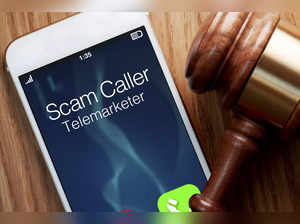 Agencies
AgenciesET Year-end Special Reads
Govt Directives
It was sent to Reliance Jio MD Pankaj Pawar, Vodafone Idea CEO Akshaya Moondra, BSNL CMD Robert Ravi and Tata Teleservices MD Harjit Singh Chauhan.
The companies are yet to revert on the Airtel proposal. They didn’t respond to ET's queries and neither did Airtel.
Telcos historically have been loath to share such sensitive data as it has financial implications, depending on the enterprise customer base.
But spam and phishing has reached such an alarming level that telcos have to devise new, collaborative ways to counter the problem, experts said.
The problem has proven intractable for stakeholders including telcos, the regulator and the government. In India, 1.5-1.7 billion commercial messages are sent every day, taking the total to about 55 billion every month, according to industry data.
As per a survey by community social media platform Local Circles, six in 10 consumers get three or more spam calls each day, with financial services and real estate said to be top offenders. Also, 76% consumers confirm getting three or more spam messages daily, another survey by the platform showed. Blocking numbers doesn’t help.

As part of efforts to curb spam messages and calls, the government recently directed telcos to disconnect entities using bulk connections to engage in such activity. In the last fortnight alone, 350,000 such numbers have been blocked and 50 entities have been blacklisted.
Recently, Trai asked telcos to share information on blacklisted entities with each other, so that such entities don’t switch from one operator to another.
Airtel has gone a step further to urge collaboration in seeking data on all corporate connections so that the unsolicited commercial communications (UCC), commonly called spam, can be prevented.
“As the telecom industry continues to face the growing challenge of UCC, it has become clear that despite ongoing efforts, more robust and unified mechanisms are required to protect our customers from this persistent issue,” Vittal said in the letter, which was also marked to Trai chairman Anil Kumar Lahoti and DoT secretary Neeraj Mittal.
Vittal stressed that in line with the directives of Trai and DoT, the focus remains on finding effective solutions to curb UCC.
“We strongly believe that tackling this issue should be a joint endeavour among all telecom operators, rather than isolated efforts,” he said.
Telecom operators must take “collective responsibility” in preventing UCC by ensuring that their networks are not exploited by spammers, especially through corporate connections that may be unintentionally facilitating such activities, he said.
“Today, enterprise customers are served by multiple operators, and we are seized of the fact that any independent efforts to address spam may not be in the best interests of customers, as it may impact the quality and continuity of services,” Vittal said.
The coordinated approach of sharing details of corporate connections would not only be efficient but also essential to maintain seamless service for business customers while addressing UCC.
“This would allow us to collectively monitor and prevent the misuse of these connections, ensuring that legitimate enterprise services are not impacted,” he added.
The regulator has been issuing various directives to telcos to curb spam and phishing. But despite that and the efforts of various government departments, the menace rages unchecked. Not all the players such as telemarketers, business entities and even telecom firms, are able to implement to the full the directives that have been issued by the authorities.
In its efforts to check spam, so far 10 million mobile connections have been severed. Around 350,000 unused or unverified SMS headers and 1.2 million content templates have been blocked.
(Catch all the Business News, Breaking News, Budget 2024 Events and Latest News Updates on The Economic Times.)
Subscribe to The Economic Times Prime and read the ET ePaper online.
Read More News on
(Catch all the Business News, Breaking News, Budget 2024 Events and Latest News Updates on The Economic Times.)
Subscribe to The Economic Times Prime and read the ET ePaper online.









































 Get Unlimited Access to The Economic Times
Get Unlimited Access to The Economic Times
